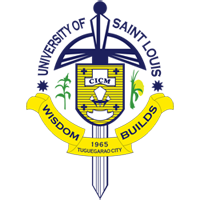
 Tuguegarao City – Studies from the University of Saint Louis (USL) on ethnopharmacology and alternative learning system (ALS) learners recently merited publication in peer-reviewed international journals.
Tuguegarao City – Studies from the University of Saint Louis (USL) on ethnopharmacology and alternative learning system (ALS) learners recently merited publication in peer-reviewed international journals.
The study entitled “Ethnopharmacology of Medicinal Plants in a Rural Area in Northern Philippines” documented the plants used for the treatment of health problems among the people of a rural community in Northern Philippines.
The community largely depends on medicinal plants, such as “adelfa” (oleander), cacao, “lumboy” (Java plum), “parya” (bitter gourd), “salamagi” (tamarind), and others, to meet the people’s primary health care needs, according to the study.
An ethnopharmacological survey was conducted to collect information about the medicinal plants used by the community people. Information was gathered from the traditional healers and local inhabitants of the community through plant collection and interview.
Forty-one (41) medicinal plant species are used by the people to treat 30 illnesses and diseases. The people use the medicinal plants in treating simple health problems, the researchers noted.
The study, conducted by Darin Jan C. Tindowen, Head of the Center for Social Innovation, Local Knowledge, and Educational Research (CSILKER), Jennifer C. Bangi, University Research Associate, and Dr. Marie Jean N. Mendezabal, Institutional Research and Publication Office (IRPO) Director, was published in the Journal of Biodiversity and Environmental Science (JBES), Volume 11, Number, 1, 2017. JBES is indexed in the Thomson Reuters/ISI Zoological Record. The full paper is downloadable at http://www.innspub.net/jbes/ethnopharmacology-medicinal-plants-rural-community-northern-philippines/.
Meanwhile, the paper entitled “Twenty-First-Century Skills of Alternative Learning System Learners” determined the 21stcentury skills of ALS learners in Northern Philippines. The Alternative Learning System of the Philippine government provides out-of-school children, youth and adults with basic education.
The study revealed that the 150 ALS learner-respondents from five schools in Northern Philippines have a high level of local connections skills or the ability of the students to apply knowledge to local or community contexts.
Moderate to low levels of acquisition were noted for critical thinking, self-direction, communication, collaboration, global connections, and information and communications technology (ICT) skills. Creativity and innovation skills were very low following ICT skills.
The study further detailed that sex, age, and employment status of ALS learners affect their acquisition of the 21st-century skills.
“The study underscores how ALS learners are doing in terms of the acquisition of 21st century skills. The study serves as a basis for policy and intervention formulation to help uplift the ALS learners for them to cope with the challenges of globalization,” said John Michael Bassig, one of the researchers.
Bassig, who is currently a Senior High School faculty in USL, co-authored the research with Tindowen and Jay-Ar Cagurangan, a Teacher Education student. Their research appears on SAGE Open, Volume 7, Issue 3, 2017. The full paper is downloadable at http://journals.sagepub.com/doi/abs/10.1177/2158244017726116.
SAGE Open is indexed in both Thomson Reuters/ISI Emerging Sources Citation Index (ESCI) and in Scopus. Thomson Reuters/ISI Emerging Sources Citation Index (ESCI) and Scopus are both databases of high-impact, peer-reviewed international journals. – With Darin Jan Tindowen

